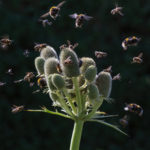
Limited awareness of what is meant by natural capital and a fluid carbon credits regulatory landscape are among the difficulties in steering money towards the fledgling strategy, says Olly Hughes of Gresham House.
Insects represent a sustainable livestock feed alternative but British regulation is stuck with the same barriers erected in response to ‘mad cow’ disease in 2001, say Rachel O’Connor and Peter Smithers.
As the market begins to cool slightly, producers are increasingly trying to make themselves investor-ready – which presents an opportunity for buyers, too, say PwC's Kosta Kangelaris and Jaclyn Hope.
Retained EU regulation means Impossible Food's flagship burger still can’t be served in the UK while cultivated meat is regulated by rules that were created before the technology existed, says Jeremy Coller.
Helen Crowley, managing director at Pollination, outlines how the public and private sector need to work together to ensure the Nature Restoration Law proposals become a reality.
Sector Program Manager Margarita Lysenkova writes that the Global Reporting Initiative’s new reporting standard can help companies respond to growing scrutiny on business practices that can potentially impact food security.
Steward ownership models that cap returns to support social mission and partnership with public and philanthropic networks are among the financing options needed in global ag, says the TIFS Initiatives’ Rex Raimond.
Flourish Ventures principal Efayomi Carr lays out the harsh impacts of ongoing macro events on Africa’s farmers and how agtech can help.
Toronto’s Area One Farms founder and CEO Joelle Faulkner talks through the fundamentals of regenerative ag and Canada’s transition challenges, such as a lack of suitable crop insurance.
West coast permanent crop specialists Paul Frankel and Jeff Steen, partners at Kachina, consider the most viable options for institutional investors to reduce their California ag exposure.


















